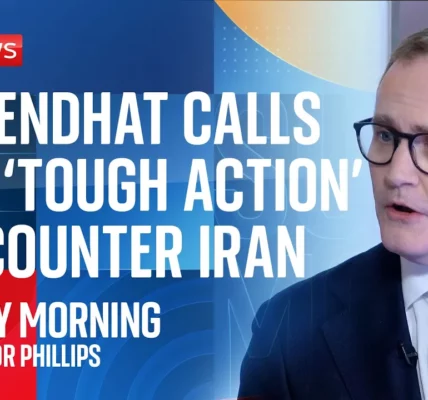Understanding the Current Events in the Middle East and the Shift to Green Energy

This article delves into the complex situation in the Middle East, focusing on the ongoing conflict and the role of various organizations. Additionally, we explore the urgent transition to green energy in the UK and innovative solutions to space debris challenges. Stay informed with our comprehensive analysis.
Introduction
The Middle East has been a focal point of conflict and geopolitical tension for decades, with recent escalations drawing international concern. The current fighting primarily involves Israel and Hezbollah, a group based in Lebanon, amid the backdrop of the Palestinian struggle for statehood. Concurrently, the UK is undergoing a significant energy transition, moving away from coal towards renewable energy sources. This article will explore these pressing issues in detail, providing insights into their implications for the region and the world.
The Ongoing Conflict in the Middle East
The recent wave of violence in the Middle East has roots deeply embedded in territorial disputes and the quest for Palestinian statehood. The following subsections will outline the key events and players involved in this conflict.
Background of the Conflict
The latest round of fighting began on October 7, 2023, when fighters from Hamas launched a surprise attack on Israel, breaching border defenses and targeting both civilians and military personnel. This attack resulted in significant casualties, with over 1,000 Israelis killed and approximately 250 hostages taken. In retaliation, Israel has intensified its military operations, leading to a staggering loss of life in Gaza, with reports indicating around 40,000 Palestinians have been killed.
Major Players in the Conflict
- Hamas: A militant organization based in Gaza, viewed as a terrorist group by many countries, including the UK.
- Hezbollah: A Lebanese militant group and political party, also designated as a terrorist organization in several countries.
- Israel: The state at the center of the conflict, facing threats from both Hamas and Hezbollah.
- Iran: A key supporter of both Hamas and Hezbollah, contributing to the ongoing tensions.
Humanitarian Impact
The humanitarian crisis resulting from this conflict is dire. Reports indicate that approximately 1 million people in Lebanon have been displaced due to the fighting. Many families have sought refuge in shelters, often in schools that have been repurposed for emergency accommodation.
The Shift to Green Energy in the UK
As the world grapples with climate change, the UK is making strides towards a more sustainable energy future. This section will cover the recent developments in the UK’s energy sector, particularly the transition from coal to renewable sources.
Closure of Coal-Fired Power Stations
The UK has recently seen the closure of its last coal-fired power station, marking a significant shift in national energy policy. This transition reflects a broader commitment to reducing carbon emissions and embracing renewable energy technologies.
Understanding Green Energy
Green energy is derived from renewable sources that are less harmful to the environment compared to fossil fuels. Key sources of green energy include:
- Solar Power: Harnessing solar energy through photovoltaic cells.
- Wind Energy: Utilizing wind turbines to generate electricity.
- Hydropower: Generating power from flowing water in rivers and dams.
Challenges and Innovations
Despite the advantages of renewable energy, challenges remain, such as energy storage and reliability. Innovative solutions, including battery storage technologies and the development of tidal lagoons, are being explored to address these issues.
Addressing Space Debris: A Growing Concern
As humanity continues to explore space, the accumulation of space debris poses significant risks to satellites and astronauts. This section discusses efforts to tackle this problem through innovative technologies.
The Scale of the Problem
There are currently over 16,800 satellites in orbit, with thousands of pieces of debris resulting from defunct satellites and other fragments. The potential for collisions increases with each new satellite launched, creating a cascading effect known as the Kessler Syndrome.
Innovative Solutions
Companies like Astroscale are developing technologies to clean up space debris. Key innovations include:
- Docking Mechanisms: Future satellites may be equipped with docking plates to facilitate the removal of non-functional satellites.
- Robotic Arms: Satellites designed with robotic arms can capture and deorbit debris safely.
The Need for Urgent Action
Experts emphasize the importance of immediate action to prevent the orbital environment from becoming unusable. With projections indicating the launch of tens of thousands of new satellites in the coming years, proactive measures are essential.
Conclusion
The ongoing conflict in the Middle East and the shift towards green energy in the UK are two pressing global issues that deserve our attention. As we navigate these complex challenges, it is imperative to seek solutions that promote peace, sustainability, and innovation. To stay updated and informed, visit our website for more articles and insights on these critical topics.
Call to Action: For more information on the conflict in the Middle East and the transition to sustainable energy, explore our related articles and resources.
“`




